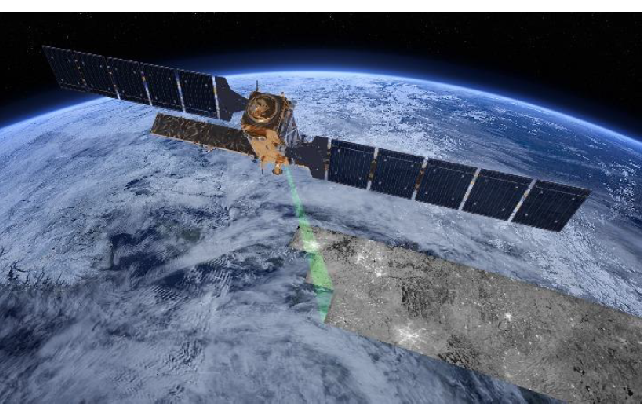Robeco has announced that it will use satellite imagery to detect deforestation in real time, in a move to support its engagement and investment decisions on sustainable palm oil.
With the cooperation of Satelligence, a Dutch satellite-powered geodata analytics company, it said that it will monitor Malaysia and Indonesia.
Peter van der Werf, engagement specialist at Robeco, commented: “Together with Satelligence, we can build a system that can monitor the progress of companies towards 100% Roundtable on Sustainable Palm Oil (RSPO)-certified plantations, and drive the transformation to a sustainable palm oil industry.”

Vegetation clearing including deforestation is shown in red; intact forests are shown in dark green, and plantations are in light green. Source: Satelligence
Werf explained that Robeco will monitor palm oil companies on their deforestation commitments by applying benchmarks part of the Zoological Society of London’s Sustainability Policy Transparency Toolkit (ZSL-SPOTT).
One of the indicators used by ZSL to assess palm oil companies is how much of their land cultivated or used for production of palm oil is RSPO certified.
Tracking problem
Deforestation can be hard to detect from the ground. The cultivation of palm oil is highly profitable and this has led to many plantation owners chasing short-term profits by developing land in unsustainable ways, Robeco said.
ZSL found in a recently released report that most of the 99 companies it analysed do not have a full understanding of the origin of all palm oil in their supply chain or a robust monitoring system in place to meet their commitments.
This is despite that more than two-thirds of companies (54 out of 83) analysed have zero deforestation commitments and more than half of the companies (55 out of 95) have commitments to respect the rights of local communities, ZSL said.
Niels Wielaard, chief executive and co-director of Satelligence, commented: “With 2020 around the corner, many companies are struggling to show progress of their commitment to end commodity-driven deforestation in their supply chains.
“Deforestation and other climate-related risks could also pose a major threat to investors’ portfolios,” he added.
Satellite technology
Satelligence accesses data from satellites operated by the European Space Agency (ESA), the Japan Aerospace Exploration Agency and NASA, to provide a real-time commodity map of the world.
The ESA Sentinel-1 satellite is able to scan the ground and also detect oil spills and melting sea ice and monitor other crops, including cocoa, soy and timber. Artificial intelligence is used to enhance the data analysis.
Robeco, with €199bn in assets under management, integrates fundamental, sustainable and quantitative research, and offers active investment strategies for a range of asset classes.







